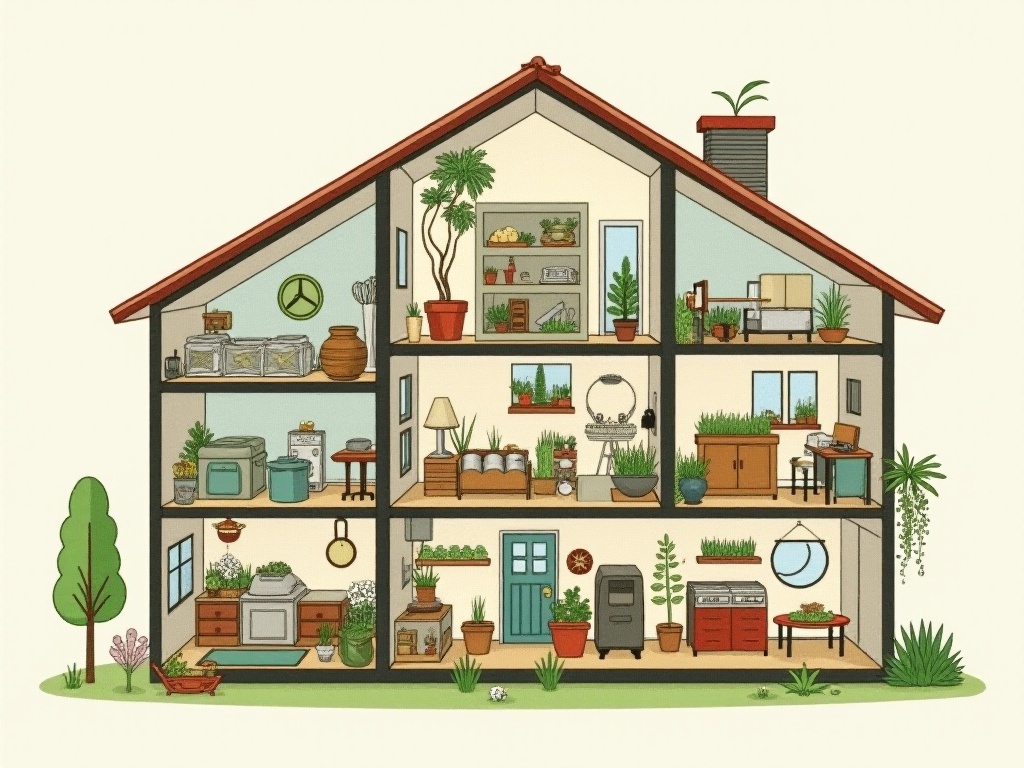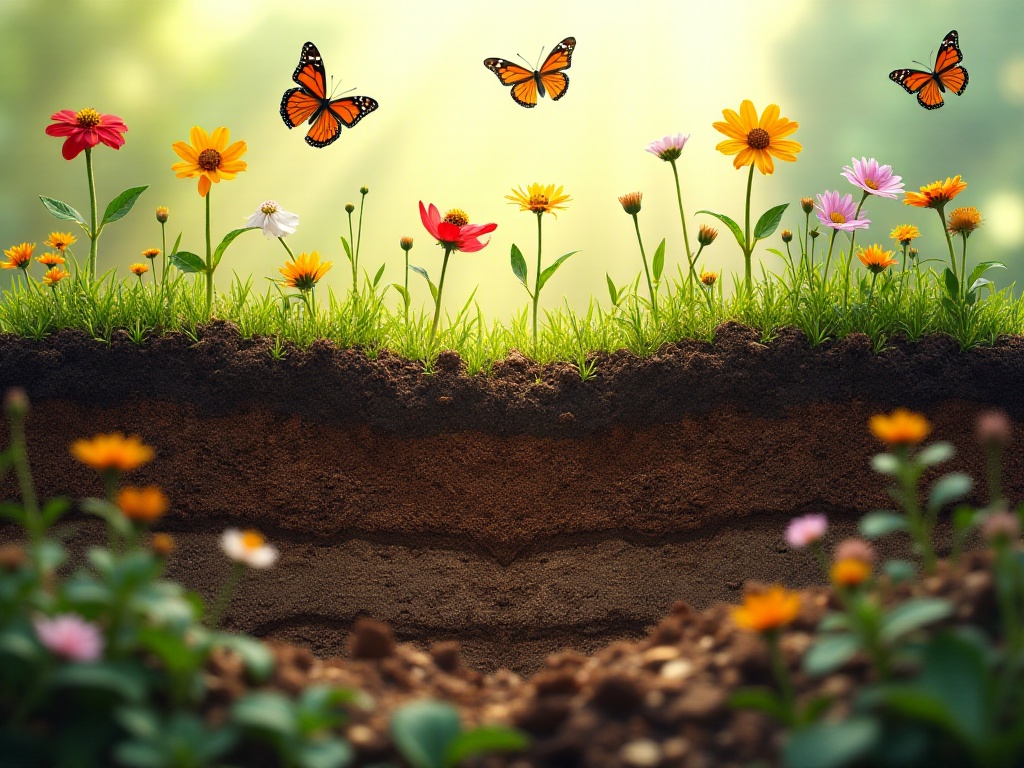
The Beginning
That evening, while cleaning up in the kitchen, I felt a surge of guilt as I looked at the kitchen waste bin that was nearly overflowing. The plastic bag contained some yellowing lettuce leaves and several pieces of spoiled bread - all of which could have been avoided. I suddenly realized that in this era of promoting sustainable development, our daily lives are filled with so much unintentional waste.
This thought wouldn't leave my mind. As I reflected on this month's expenses, I noticed that just the takeout containers alone filled an entire storage box. Every time I received an online purchase, there would be a pile of packaging materials left after opening. At the supermarket, I would casually grab single-use plastic bags. These seemingly insignificant actions accumulated into shocking amounts of waste.
After careful consideration, I decided to challenge myself: a one-month zero-waste living experiment. While achieving absolutely zero waste might be idealistic, I could at least start now and gradually reduce unnecessary waste in my life.
Preparation
To make this attempt more convincing, I spent a week recording the waste generated in my daily life. Every evening, I would carefully sort and weigh the day's garbage. This process made me deeply realize that the amount of waste we generate in our daily lives far exceeds what we imagine.
Through data analysis, I was shocked to discover that I generated an average of 2.5 kg of waste per day. Food waste was the largest component, accounting for 40% of the total, mainly from leftovers, expired ingredients, and takeout remains. This was followed by plastic packaging at 35%, including takeout containers, delivery packaging, and food packaging. Paper waste made up 15%, primarily delivery boxes, flyers, and various receipts. The remaining 10% consisted of miscellaneous items like dead batteries and broken small objects.
These alarming numbers made me realize I needed to take action. I set myself a relatively conservative but achievable goal: reduce total waste by 50% in the first month. Though this goal sounded challenging, I believed it could be achieved through gradual changes.
To better implement zero-waste living, I began researching online, joined environmental protection communities, and learned from experienced zero-waste practitioners. Meanwhile, I also started preparing some necessities like reusable shopping bags, glass jars, and stainless steel lunch boxes.
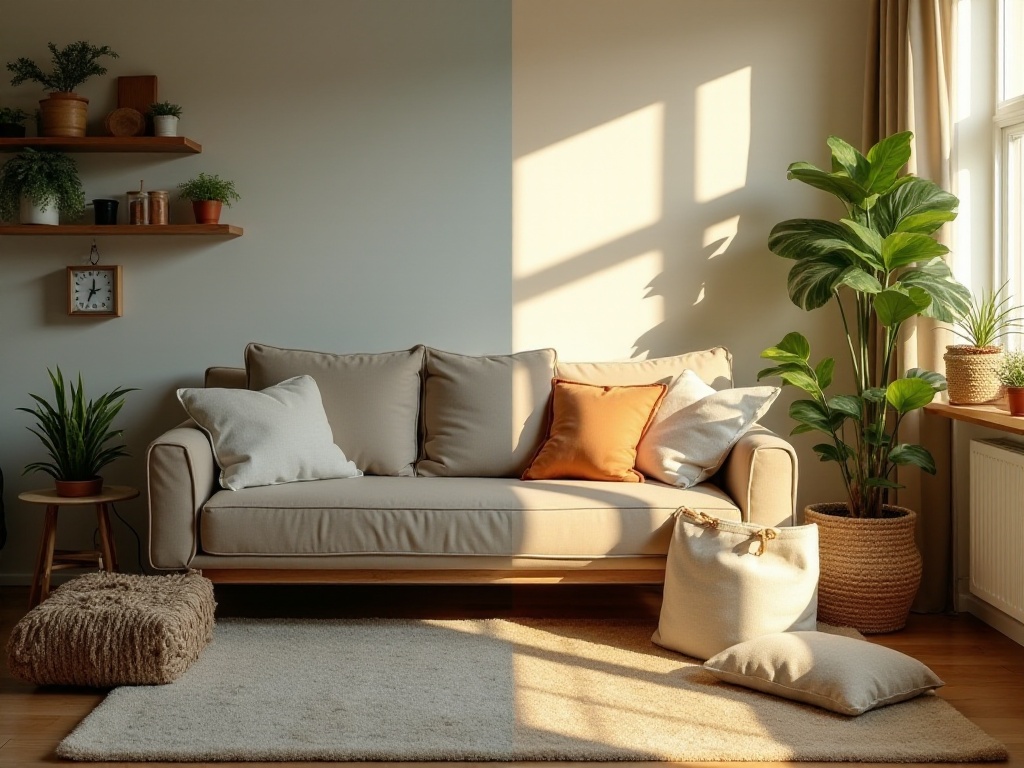
Change in Mindset
During the practice of zero-waste living, I gradually realized that the most fundamental change lies in transforming consumption attitudes. I used to be a typical "stockpiler," unable to resist ordering whenever there were discounts, often buying things I didn't need. I couldn't resist buy-one-get-one-free promotions at the supermarket, resulting in my home being filled with nearly expired snacks and daily necessities.
Now I strictly follow the "5R Principle." First is "Refuse," firmly rejecting all unnecessary items, including promotional gifts and disposable hotel amenities. Second is "Reduce," carefully considering whether something is truly needed before purchasing to avoid impulse buying. Third is "Reuse," repairing items when possible and finding new uses for old items. Fourth is "Recycle," ensuring recyclable items enter the correct recycling channels. Finally, "Rot," allowing kitchen waste to return to nature through composting.
This principle changed my shopping habits. Now before going to the supermarket, I carefully check what I have at home and make detailed shopping lists. I strictly follow the list while shopping and no longer get tempted by promotions. Through these changes, my impulse purchases decreased by 80%, saving at least 500 yuan each month.
Moreover, I developed the habit of carrying reusable dining utensils. A canvas bag contains a stainless steel lunch box, bamboo chopsticks, a collapsible cup, and a cloth handkerchief, allowing me to avoid using takeout containers and disposable utensils. Though it means carrying extra items, this minor inconvenience is nothing compared to contributing to environmental protection.

Kitchen Revolution
Zero-waste living brought revolutionary changes to my kitchen. Previously, plastic bags were everywhere, ingredients were randomly stored, and I would often find moldy fruit or spoiled leftovers in corners. Now the kitchen is neat and organized, with all ingredients stored in glass jars, not only looking pleasing but also keeping ingredients fresh longer.
I started learning proper ingredient storage methods. For example, removing carrot and white radish leaves before storage extends their shelf life; keeping herbs in water like flowers keeps them fresh; storing bread in dedicated bread boxes prevents hardening and mold. These small techniques extended the shelf life of ingredients by an average of 1.5 times, greatly reducing food waste.
The most exciting part was starting kitchen waste composting. I converted a 15-liter sealed bin into a compost bin, drilling small holes at the bottom for ventilation, and daily adding fruit peels, vegetable leaves, coffee grounds, and other organic waste. Initially worried about odors, I found that maintaining proper moisture balance and ventilation prevented any unpleasant smells.
After a month, this small compost bin provided me with 5 kg of quality organic fertilizer. I used this fertilizer in my balcony garden, where the vegetables grew vigorously. Seeing kitchen waste that would have been thrown away transform into plant nutrients, I experienced nature's amazing cycle.
When buying ingredients, I also became more mindful of quantities. Previously, worried about not having enough, I would always buy extra, often leading to waste. Now I calculate needed ingredients precisely based on family portions, ensuring balanced nutrition without excessive leftovers. For dishes likely to have leftovers, I plan ahead for next-day transformations, like turning leftover rice into fried rice or leftover vegetables into dumpling filling.
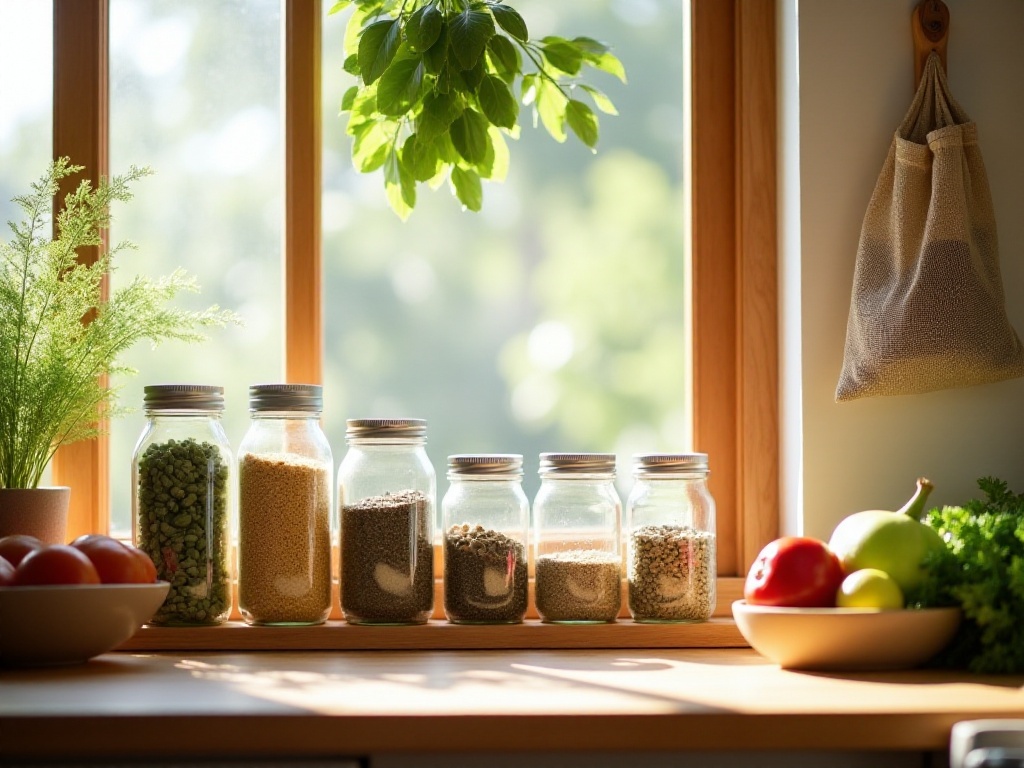
Life Hacks
In terms of personal care, I also made a series of changes. First was switching daily items, replacing plastic toothbrushes with bamboo ones and liquid shampoo with solid shampoo bars. Though it took some getting used to the solid shampoo bar, I quickly discovered its advantages: one bar lasts three full months, equivalent to three bottles of liquid shampoo, at half the price. More importantly, it requires no plastic packaging and generates no waste.
My bathroom also became much simpler. Previously, the counter was filled with various skincare products; now I keep only the basics. I started using reusable cotton pads and decanting large bottles of skincare products into small spray bottles. This not only reduced packaging waste but also saved considerable space.
My zero-waste toolkit became an indispensable part of my life. The kit contains foldable shopping bags, stainless steel straws, portable utensils, and cloth handkerchiefs. Though I often forgot to bring it at first, it gradually became a habit. Every time I use my own utensils instead of disposable ones, I feel a small sense of achievement.
I also learned to make some cleaning products. Natural cleaners can be made from white vinegar, baking soda, and essential oils, both eco-friendly and safe. Homemade fabric softener using white vinegar and a few drops of essential oil works just as well as commercial products.

New Shopping Mindset
Through this experiment, I gained a new perspective on shopping. Instead of habitually accepting plastic bags from stores, I now bring my own shopping bags. I particularly enjoy shopping at farmers' markets, not only for the fresh produce but more importantly because I can bring my own containers, eliminating the need for additional packaging.
Supermarket shopping also became more planned. I bring glass jars to the bulk section for grains, dried goods, and seasonings. Though preparation takes more time, whenever I see other customers leaving with loads of plastic bags, I feel proud of my choices.
When shopping online, I pay special attention to selecting vendors with simple packaging and try to combine orders to reduce delivery packaging. After receiving deliveries, I carefully preserve the boxes and bubble wrap for future shipping needs.
After a month of persistence, my household waste decreased by 65%, far exceeding the original 50% goal. More delightfully, this lifestyle not only protected the environment but also saved considerable expenses. Previous casual shopping habits led to unnecessary monthly expenses, but now through careful calculation and waste reduction, I save at least 1,000 yuan each month.
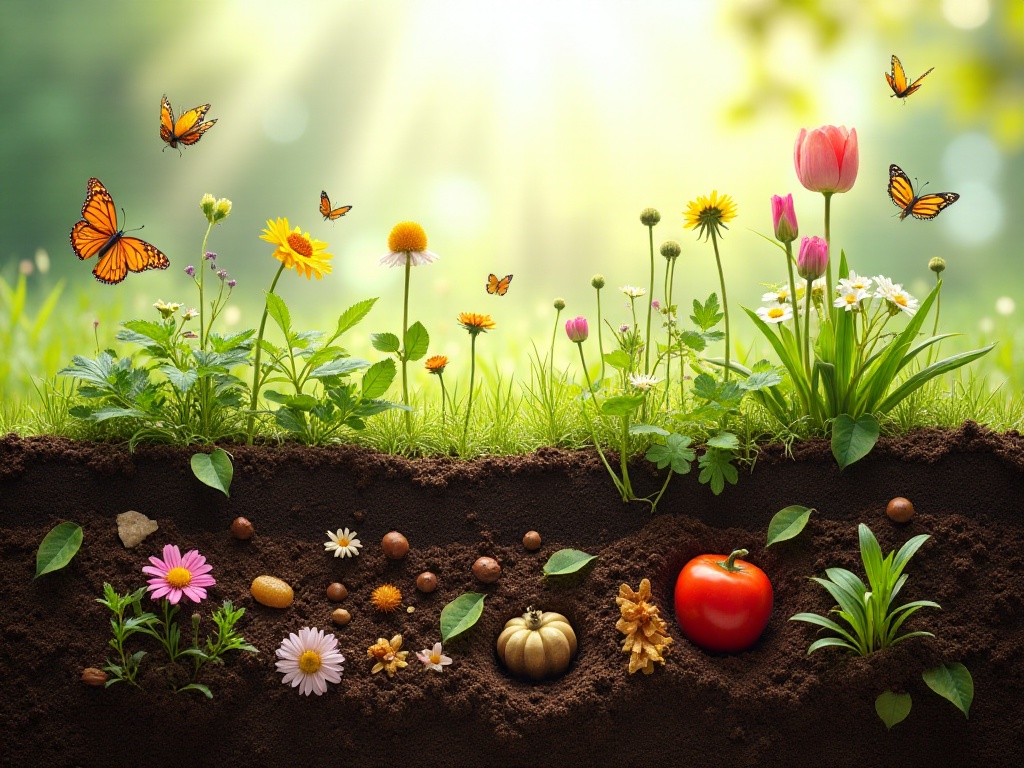
New Discoveries
This month of zero-waste living gave me many insights. I began to contemplate what constitutes true "needs" versus momentary "wants." Often, we're not pursuing the items themselves but rather the fleeting satisfaction from shopping. When we slow down and seriously consider the necessity of each purchase, we find that a simple lifestyle actually brings more happiness.
Zero-waste living taught me to cherish everything around me and better understand the importance of sustainable development. It's not just a lifestyle but an attitude toward life. When we start paying attention to every detail in daily life, we discover that changing small habits can reduce Earth's burden and leave a better environment for future generations.
Through this experiment, I deeply realized that zero-waste living doesn't mean sacrificing quality of life. Instead, it made my life more organized and meaningful. Each small change contributes to a better future, and this sense of achievement can't be bought with money.
This lifestyle is worth trying for everyone. Though it might seem troublesome at first, persistence reveals it to be a wiser way of living. I hope more people will join the zero-waste movement, and together we can contribute to Earth's future.
Next
From Zero to One: A Comprehensive Guide to Building the Perfect Healthy Lifestyle at Home
A comprehensive guide to healthy lifestyle and zero waste living, covering essential health aspects like weight management, balanced nutrition, and exercise routines, along with waste management based on 5R principles and sustainable living practices
Understanding Healthy Living in 10 Minutes: From Zero Waste to Balanced Nutrition, Improve Your Quality of Life by 300%
A comprehensive guide to healthy lifestyle and zero waste living, covering essential aspects of balanced nutrition, exercise routines, weight management, and environmental practices including the 5R principle and recycling for sustainable living
Health Living Guide for Post-90s Workers: 15 Key Habits for Daily Energy
A comprehensive guide to healthy living covering essential aspects of diet, nutrition, exercise, sleep patterns, and mental wellness, offering practical advice for developing sustainable healthy habits and improving overall quality of life
Next
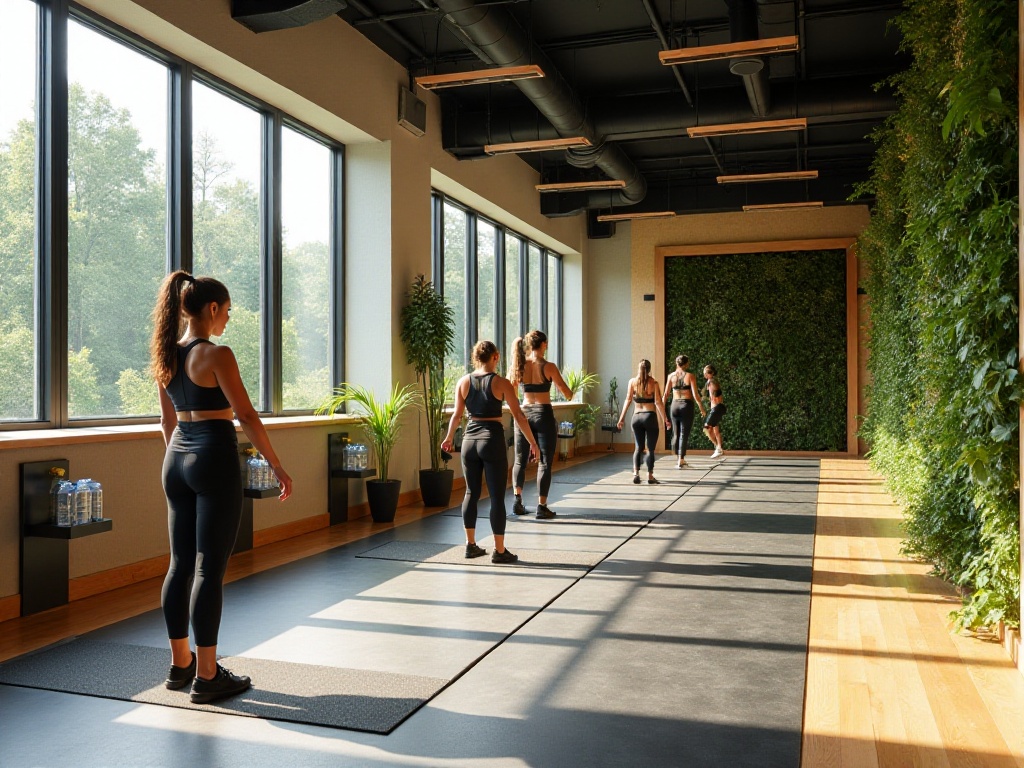
From Zero to One: A Comprehensive Guide to Building the Perfect Healthy Lifestyle at Home
A comprehensive guide to healthy lifestyle and zero waste living, covering essential health aspects like weight management, balanced nutrition, and exercise routines, along with waste management based on 5R principles and sustainable living practices
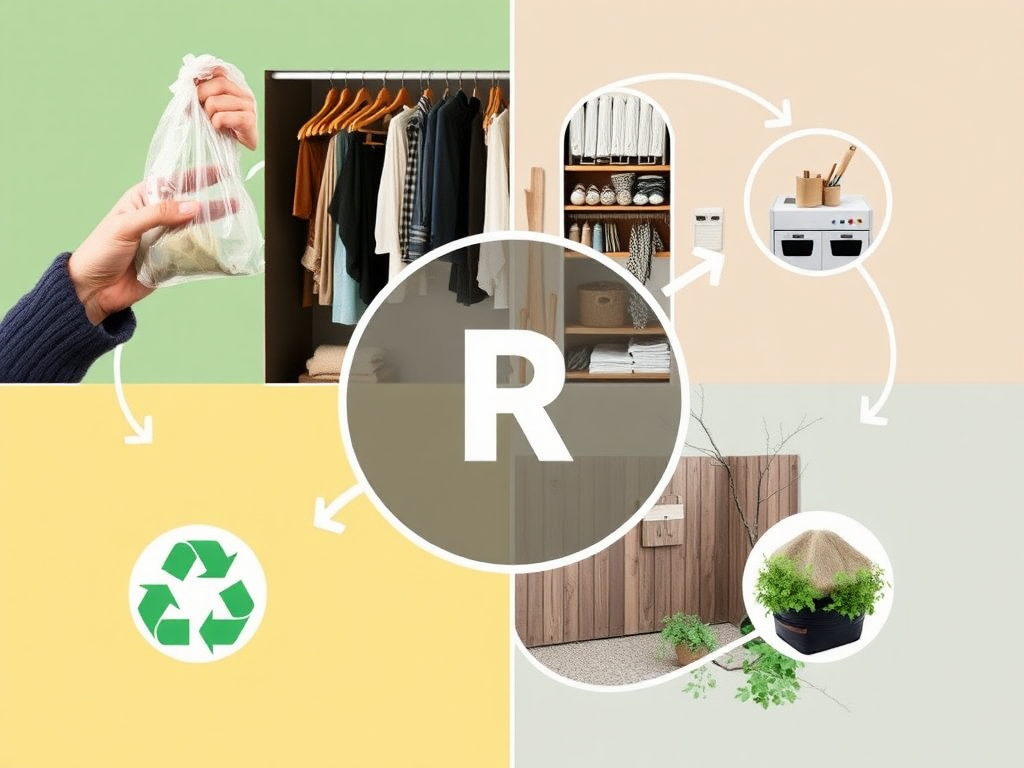
Understanding Healthy Living in 10 Minutes: From Zero Waste to Balanced Nutrition, Improve Your Quality of Life by 300%
A comprehensive guide to healthy lifestyle and zero waste living, covering essential aspects of balanced nutrition, exercise routines, weight management, and environmental practices including the 5R principle and recycling for sustainable living
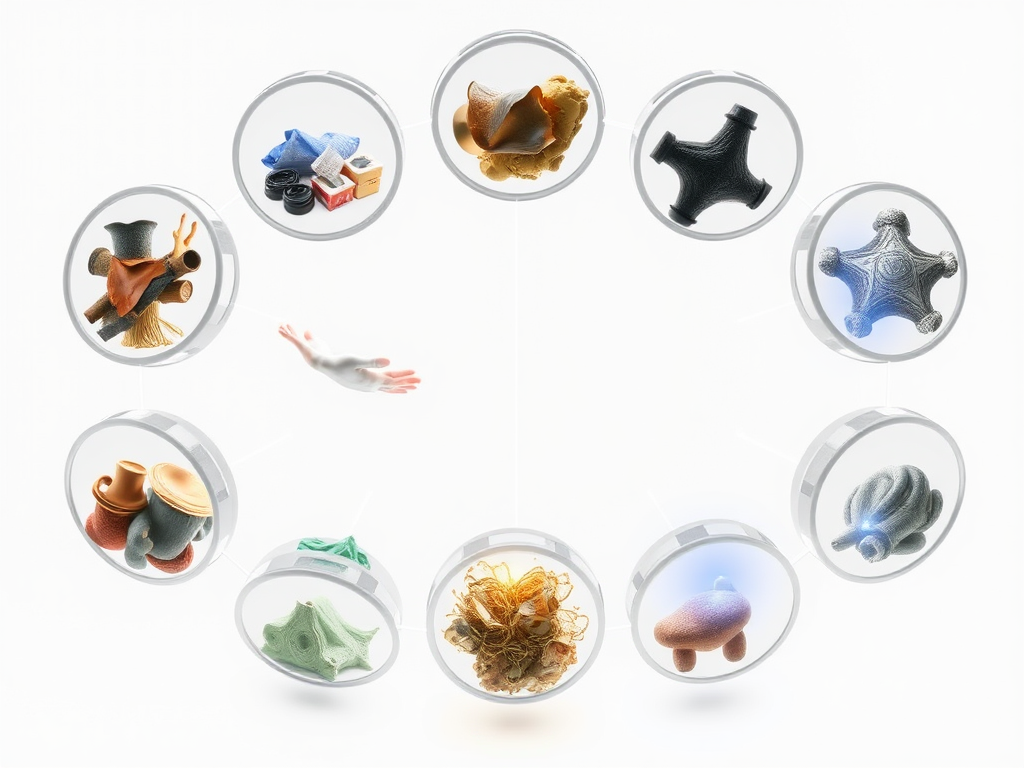
Health Living Guide for Post-90s Workers: 15 Key Habits for Daily Energy
A comprehensive guide to healthy living covering essential aspects of diet, nutrition, exercise, sleep patterns, and mental wellness, offering practical advice for developing sustainable healthy habits and improving overall quality of life

